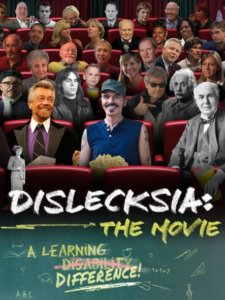Movies are Powerful!
Written by Sandie Barrie Blackley, Speech-Language Pathologist
Published on March 14, 2011
When David Seidler accepted the Best Original Screenplay Oscar for The King’s Speech, his touching comment on behalf of stutterers worldwide was, “We have a voice. We have been heard.” The movie’s Oscar sweep guarantees the film a wider audience and the subject – stuttering – a new level of awareness.
Unlike stuttering, which is painfully visible to anyone watching, dyslexia is often hidden to all but those who experience it, and their loved ones. Without timely evaluation, diagnosis and treatment, dyslexics may never learn to read.
That’s not to suggest they won’t succeed in the world. Their intelligence will help them mask their deficit and drive them toward achievement in other areas. The list of “famous dyslexics” is staggering: Tony Bennett, Richard Branson, Erin Brokovitch, Steven Cannell (writer/producer), Anderson Cooper, Richard Rodgers (architect), Philip Schultz (Pulitzer Prize-winning poet)…well, the list goes on and on. But more about them another day.
We do sometimes see dyslexics portrayed on the big and small screen, such as Ben Affleck as Captain Rafe McCawley in Pearl Harbor and Sandra Oh as Cristina Yang in Grey’s Anatomy, but dyslexia has not (yet) starred as the central subject of a blockbuster.
 We hope that dyslexia will someday have its Best Picture day at the Academy Awards. Meanwhile, we’re encouraged by the buzz around Dislecksia: The Movie, a “comic documentary”. Director Harvey Hubbell V takes an irreverent look at a serious subject with a serious goal: “It will educate a wide public on what dyslexia is — not a sign of stupidity as so many believe, but of a need to learn in a different way,” Hubbell says.
We hope that dyslexia will someday have its Best Picture day at the Academy Awards. Meanwhile, we’re encouraged by the buzz around Dislecksia: The Movie, a “comic documentary”. Director Harvey Hubbell V takes an irreverent look at a serious subject with a serious goal: “It will educate a wide public on what dyslexia is — not a sign of stupidity as so many believe, but of a need to learn in a different way,” Hubbell says.
Thanks to technology, effective, research-based help for children with dyslexia and other language-learning disorders is available, not just to kings, but to anyone who can access the internet. While King George VI had to travel to his therapist’s office to get help, today parents and kids can connect with clinicians from the convenience and privacy of their own homes via virtual therapy. Give us a call and we’ll connect you with a clinician who can help your child – no matter where you are.
If you think that your child could be dyslexic, please take a few minutes now to try the free Lexercise Screener. The results could make a huge difference in your child’s life.
If you have questions about dyslexia or other language-processing disorders, I welcome your comments and questions.
Improve Your Child’s Reading
Learn more about Lexercise today.
Schedule a FREE
15-minute consultation


